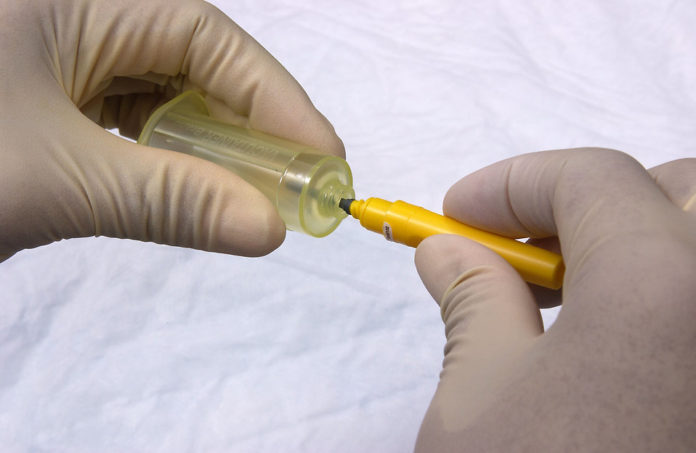New test could detect multi drug-resistant hospital bugs in 20 to 45 minutes with 100% accuracy
A new rapid blood test detects bacteria resistant to most antibiotic groups (including advanced antibiotics such as carbapenems) within 20 to 45 minutes with 100 percent certainty. Current test procedures still take up to 72 hours. The results of the study have been published in PLOS ONE.
Patients with bloodstream infections caused by gram-negative pathogens such as Escherichia coli (E. coli), Acinetobacter and Klebsiella spp. are difficult to treat and have high death rates, especially in patients with low immunity. Immediate treatment with sensitive antibiotics is crucial but conventional detection methods through blood cultures take upto 72 hours.
Carbapenems are the most powerful antibiotics against such infections. However, due to the increased antibiotic resistance of bacteria, including against carbapenems, therapy has become increasingly difficult. Delay in effective treatment against such multi-resistant bacteria leads to spread of infection throughout the body resulting in sepsis and multiple organ failure and deaths. Every minute is crucial in such life threatening infections.
Current methods take about 16 to 72 hours to detect antibiotic resistance. Faster diagnostics is therefore an essential step in treating patients with infections caused by carbapenem-resistant bacteria
Current methods take about 16 to 72 hours to detect antibiotic resistance. Faster diagnostics is therefore an essential step in treating patients with infections caused by carbapenem-resistant bacteria, and in curbing the spread of infection to other parts of body.
The resistance of gram-negative bacteria is usually caused by enzymes that can destroy antibiotics, known as carbapenemases. The most common carbapenemases worldwide are Klebsiella pneumoniae carbapenemase (KPC), New Delhi metallo-betalactamase (NDM) and OXA-48. New Delhi metallo-betalactamase (NDM) is an enzyme produced by bacteria carrying the NDM-1 gene, also known as NDM-1 superbug which has been found to be resistant to all available antibiotics. This superbug came to focus after a swedish woman of Indian origin was diagnosed with this multi-resistant bug after her travel to New Delhi.
This study examined blood samples mixed with carbapenemase-producing bacteria. Three of the four most common carbapenemases – OXA-48, KPC and NDM – were discovered directly from positive blood cultures using a single test procedure without the need for time-consuming further cultivation on agar plates. The new method is fast, easy to use, inexpensive (approximately 10 euros per test) and can be performed in any clinical microbiology laboratory.
“With this procedure, we have come a giant step closer to our goal of being able to help patients infected with multi-resistant pathogens as quickly as possible,” said the lead author of the study ,Professor Dr. Axel Hamprecht from the German Center for Infection Research and the Institute for Medical Microbiology, Immunology and Hygiene at Cologne University Hospital.
“In the case of the aggressive pathogens we are confronted with, every minute counts in order to start a targeted therapy. We now have to conduct follow-up studies in order to transfer our findings into clinical practice as quickly as possible.”


